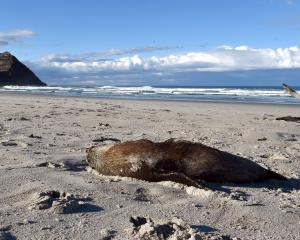
Following an extensive international search, Prof Jemma Geoghegan has been named the Webster Family Chair in Viral Pathogenesis.
Her research focuses on how and why viruses jump hosts and emerge in new populations, and how they evolve while they spread.
She has helped pioneer bioinformatic methods for the discovery of novel viruses which are beginning to revolutionise the study of virology.
"This chair and the associated funding will mean that my current research will be expanded beyond what I thought would be possible.
"My hope is that by collaborating broadly and building up a network of people working in this area, we can really expand our understanding of this field of virology."
Originally from Scotland, Prof Geoghegan completed her PhD in the University of Otago zoology department in 2012, before moving to the United States to conduct postdoctoral research on HIV at New York University.
Her career then took her to University of Sydney and Macquarie University, before she returned to Otago to become a professor at the School of Biomedical Sciences in early 2020.
About the same time, the Covid-19 pandemic hit New Zealand and she immediately found herself not just at the forefront of research into the virus, but often in front of the media, both nationally and internationally.
"Being on the front line of the country’s response to a viral pandemic was definitely something I didn’t think I’d ever experience."
During this time, she co-led the establishment of genomic sequencing of Sars-CoV-2 at the Institute of Environmental Science and Research.
The resulting genomic approach was described as "world leading" in a report commissioned by the Office of the Prime Minister’s chief science adviser, and as a result, viral genomics became critical to New Zealand’s public health response.
She said a major part for her had always been to inspire and be a role model for women in science.
"An important priority for me is to train the next generation of scientists in this field, to build capability and ensure we are much better prepared to tackle the challenges that infectious diseases will bring.
"This role demonstrates leadership in research and I hope it will encourage a change in culture where women are seen to be leaders in this space, too."
Advertisement













